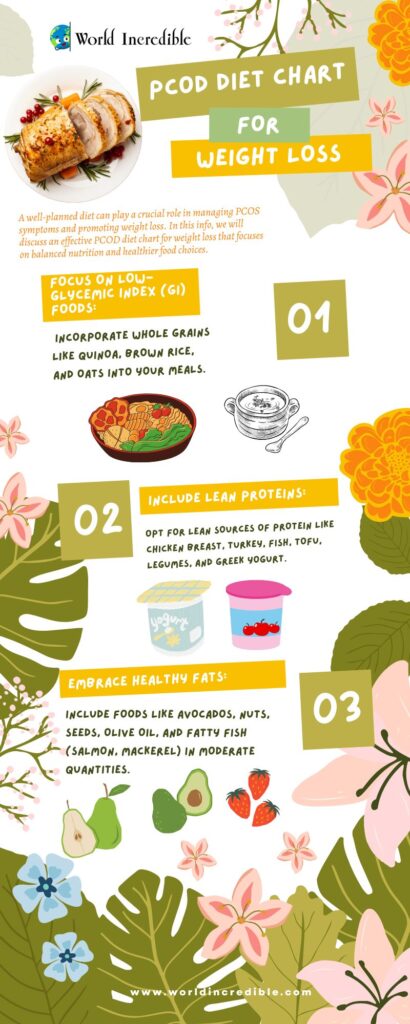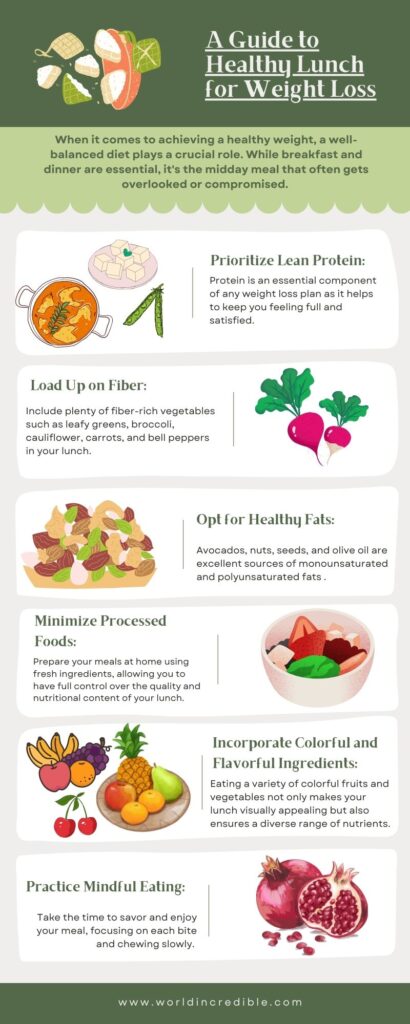Polycystic Ovary Syndrome (PCOS) is a hormonal disorder affecting many women around the world. Among its numerous symptoms, weight gain and difficulty in losing weight are common challenges faced by women with PCOS. A well-planned diet can play a crucial role in managing PCOS symptoms and promoting weight loss. In this blog, we will discuss an effective PCOD diet chart for weight loss that focuses on balanced nutrition and healthier food choices.
Understanding PCOD and Weight Gain:
PCOD is a condition characterized by hormonal imbalances, insulin resistance, and metabolic irregularities. These factors often contribute to weight gain, making it challenging to shed those extra pounds. However, with the right dietary approach, you can create a favorable environment for weight loss while addressing the underlying hormonal issues.
The PCOD Diet Chart for Weight Loss:
Focus on Low-Glycemic Index (GI) Foods:
Choosing foods with a low glycemic index helps regulate blood sugar levels and insulin response. Incorporate whole grains like quinoa, brown rice, and oats into your meals. Opt for complex carbohydrates that provide sustained energy and avoid refined grains such as white bread and white rice.
Include Lean Proteins:
Protein-rich foods are beneficial for weight loss as they increase satiety and help in building lean muscle mass. Opt for lean sources of protein like chicken breast, turkey, fish, tofu, legumes, and Greek yogurt. These foods provide essential amino acids and can be a part of your regular diet.
Embrace Healthy Fats:
Not all fats are bad for you. Incorporating healthy fats in your PCOD diet is essential. Include foods like avocados, nuts, seeds, olive oil, and fatty fish (salmon, mackerel) in moderate quantities. These fats provide essential omega-3 fatty acids and support hormone production and overall health.
Load Up on Fiber:
Fiber-rich foods aid digestion, promote satiety, and help stabilize blood sugar levels. Include plenty of fruits, vegetables, whole grains, and legumes in your diet. Fiber also assists in maintaining a healthy gut microbiome, which can positively impact PCOS symptoms.
Watch Your Portions and Meal Frequency:
Maintaining portion control and eating at regular intervals is crucial for managing PCOS and weight loss. Aim for three balanced meals and two healthy snacks per day. Avoid skipping meals or going for long periods without eating, as it can lead to blood sugar imbalances and overeating later.
Limit Processed Foods and Added Sugars:
Processed foods and added sugars can wreak havoc on your hormone balance and exacerbate PCOS symptoms. Stay away from sugary beverages, sodas, candies, pastries, and fried snacks. Opt for natural sweeteners like stevia or use moderate amounts of honey or maple syrup instead.
- Stay Hydrated: Adequate hydration is essential for overall health and weight management. Drink plenty of water throughout the day and limit the consumption of sugary drinks and alcohol. Water helps in maintaining proper metabolic function and supports detoxification processes.
- Seek Professional Guidance: Consulting a registered dietitian or nutritionist who specializes in PCOD and weight management can provide personalized guidance. They can help you create a customized PCOD diet chart based on your individual needs and preferences.
Conclusion:
Adopting a well-balanced PCOD diet chart for weight loss can be a game-changer in managing PCOS symptoms and achieving a healthy weight. Remember to focus on whole, unprocessed foods, control portion sizes, and prioritize regular meals. Combining this dietary approach with regular exercise, stress management, and adequate sleep can further enhance the effectiveness of your weight loss efforts.
« Power of Optimized Voice Search: Revolutionizing the Way We Interact with Technology











No Comments yet!